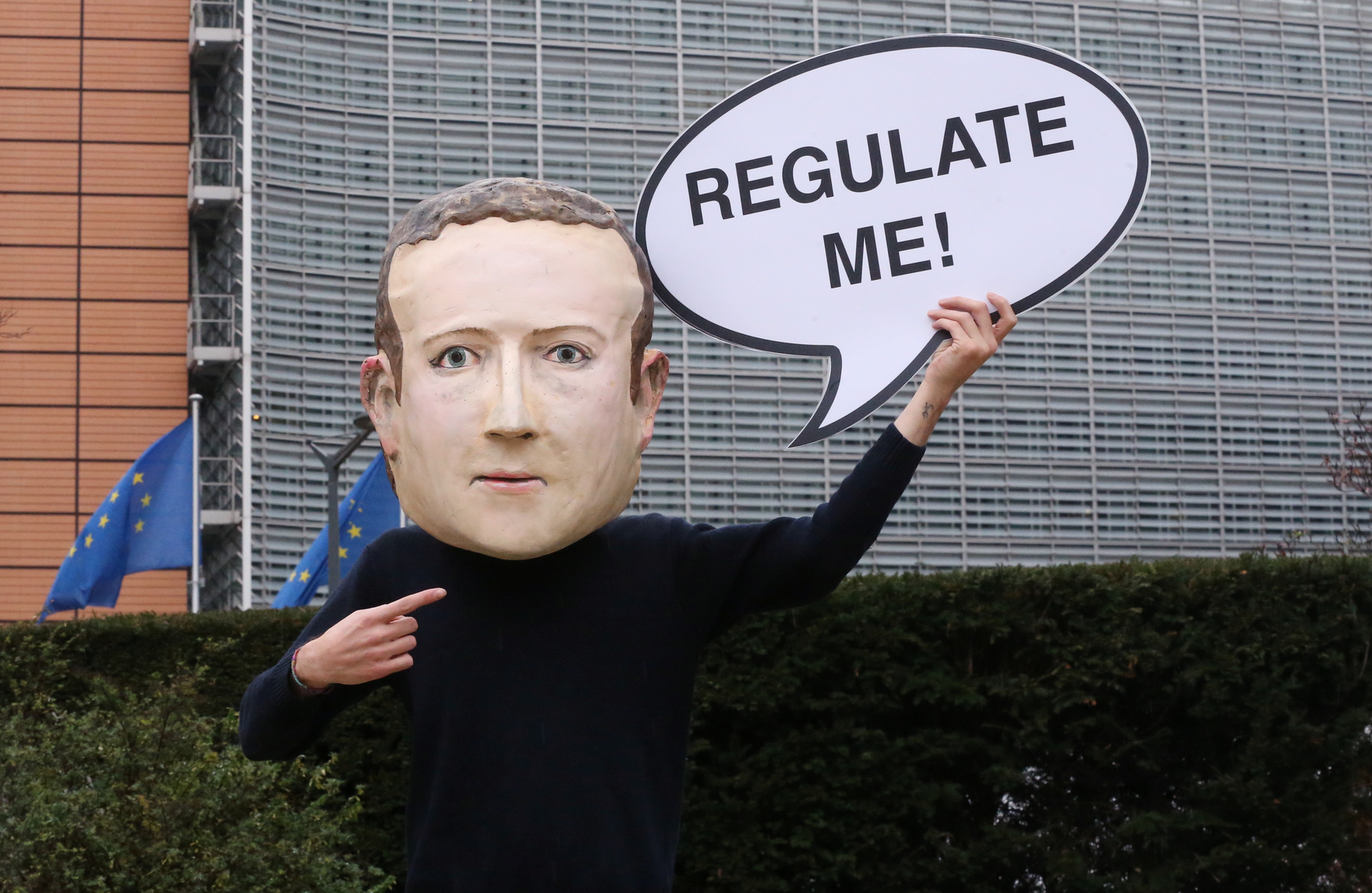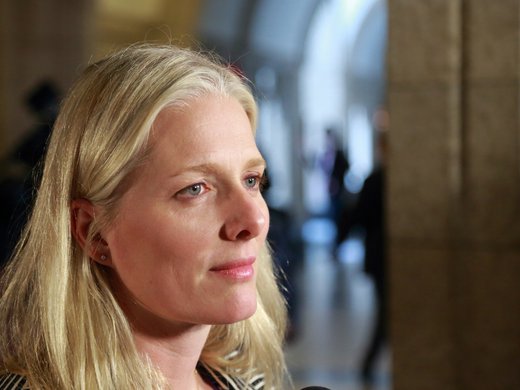At my university I teach an upper-year course on the global digital political economy. In it, we cover topics such as intellectual property rights, data governance, platform regulation and internet governance. It’s never hard to link these issues to current events. Activists fighting against onerous patent restrictions on life-saving COVID-19 vaccines, racist algorithms, Facebook behaving badly or Russia’s latest attempts to control the internet in its territory: over the past several years these have all become front-page stories.
The challenge is to make these things understandable to students. Because, for all the talk of “digital natives,” people in their twenties have as little understanding as anyone else of the nature of the digital society in which we live.
This is why, every year, we begin by highlighting the basics. One perennial question: What is knowledge? This is important because the control of knowledge via data, intellectual property and the telecommunications system is the primary focus of a digitized economy. Another important one: What is power? After all, control over knowledge is exerted by some actors (and not others), for some purposes (and not others). As the saying goes, knowledge is power.
This focus on first principles is designed not only to help students draw their own conclusions about these issues. Even more importantly, it’s intended to enable them to situate where other people are coming from when they make different arguments. They don’t have to agree with these perspectives, but they do need to understand them. Absent this understanding, it is far too easy for debates to devolve into with-us-or-against-us battles that make compromise – the soul of democratic politics – impossible.
Recognizing Fundamental Values Clashes
In this article I will try to put this promotion of understanding, rather than argument, into practice. My goal is to illuminate the unstated assumptions in digital policy debates, rather than to argue a side.
In internet governance, there is no topic in greater need of better understanding than the debate over online content regulation. The spring 2021 debate over Bill C-10, the Canadian government’s broadcasting reforms, devolved from a cultural policy discussion into claims by the federal Conservatives and others that it was a “censorship” bill. At the height of this fracas, I was approached by a colleague who worried that it would affect what they could teach in the classroom (spoiler: it wouldn’t).
It’s a fraught subject.
Academics such as Corinne Cath have been arguing for a human rights–based approach to internet governance — one that recognizes that unfettered free speech itself negatively affects the ability of some groups, such as women and racialized people, to engage in public life without fear of doxing, rape threats and death threats.
Addressing these concerns has been an uphill battle because it involves challenging fundamental norms of internet governance. That internet governance should favour maximizing free speech above all else has been the dominant ideology surrounding the internet for decades; it’s a product of its US origins. As with the Bill C-10 debate, government regulatory actions are often seen as an attack on the internet itself, framed as a step on the slippery slope toward authoritarianism.
As intractable as these debates can seem, we can move forward by recognizing that these are not Manichean battles of good versus evil, but rather discussions about how to prioritize socially legitimate and necessary values.
Supporting free speech online does not require rejecting the obvious reality that this freedom can also be abused, harming individuals, groups and society itself. But in focusing on free expression, it’s very easy for these real harms to real people to fall by the wayside. In practice, the free-speech position tends to be heavily biased toward the status quo — protect the free and open internet. This perspective tends to treat any attempts at regulation, as Dutch internet scholar Niels ten Oever notes, as an attack on the internet itself.
As important as free speech is, however, claiming that it is the foundational value is highly one-dimensional.
The Four Values
As important as free speech is, however, claiming that it is the foundational value is highly one-dimensional. As the great international political economy scholar Susan Strange noted in her seminal book States and Markets, all societies must deliver four things in order to function properly. First, they must provide a degree of wealth, to satisfy people’s physical wants and needs. Second, physical security: societies won’t last long if everyone fears for their safety. Third, individual freedom, for people to pursue their own interests. Fourth, societies must serve justice, or equity: citizens need to sense that they and others are fairly treated compared to everyone else.
People and societies differ, however, on how to satisfy these values and — most importantly — which values should be prioritized over the others. This contest over values is the core of politics, and it is incredibly important: a society that values security above all will look quite different from one that prizes justice, freedom or wealth.
And here we get to the politics of the issue. The internet-freedom position effectively argues that the promotion of individual freedom should be prioritized over, or traded off against, the pursuit of justice and security. (Its position on wealth is less obvious, because the commercial nature of the modern internet makes a defence of internet freedom almost equivalent to a defence of the commercial platforms.)
To be clear, taking a libertarian prioritization of individual freedoms over security and justice does not necessarily make one oblivious to the problems caused by online harms: this is about ranking priorities. But it does mean that preserving individual freedom of expression and defending the free-speech status quo are inevitably going to be seen as more important than helping those people and groups affected by harmful speech.
Understanding internet governance as a clash over fundamental values also highlights that arguments in favour of internet regulation are arguments that justice, equity and security (in this case, individual security from threats) should be prioritized over individual freedom and wealth. This understanding is in line with Cath’s aforementioned human rights perspective, focusing on marginalized individuals and groups who are driven out of the public square by hate speech, threats and harassment.
Making the Trade-Off
Seeing internet governance as an exercise in prioritizing legitimate values highlights that the individual-freedom caucus is at least partly correct: measures that address problematic speech do restrict individual freedom.
But it also highlights the generally unacknowledged trade-off at the heart of these passionate defences of individual freedom: promoting individual freedom effectively deprioritizes the pursuit of equity, justice and security, mostly at the expense of the marginalized in society.
Understanding these issues as debates over how to rank legitimate values requires fully acknowledging that actual people are being hurt by the current system based on individual freedoms and that addressing these needs comes at the price of some restrictions on speech.
The point is, there is no objectively best way to rank these values. As Strange remarked, all societies have to deliver some wealth, some freedom, some justice and some security. I obviously have my views on which approach is better. However, it would be disingenuous of me not to acknowledge that one can make legitimate arguments for both the individual freedom and the justice positions.
Starting points matter. The challenge for academics and policy makers is to avoid judging proposals for internet regulation on the basis of how they affect a single value, in this case individual freedom — which, as Cath points out, is the dominant value shaping the discourse on internet governance. Instead, we need to take seriously the duty of governments to also deliver justice and security. Rather than ask “How will these changes affect internet freedom?” it would be much healthier to start with the more open-ended question, “What kind of internet do we want?” — all the while being conscious of the trade-offs implicit in our own, often unconscious, starting points.
Politically, understanding that societies must provide for some combination of these values opens the door to compromise. Rather than viewing the regulation process as all-or-nothing, this approach gestures toward the need to consider the trade-offs necessary for democratic politics to function. The question then shifts from whether governments should regulate to how they should regulate, and in whose interest.
For readers wishing to educate themselves, this brings home that there are no easy or optimal answers here, and that we have a responsibility to think though what values we want to inform our internet-governance policies.



